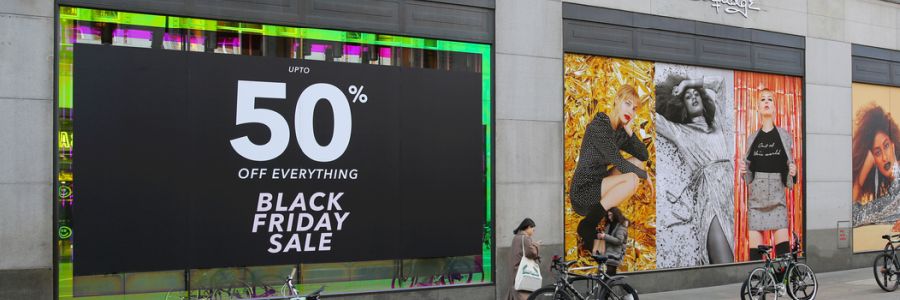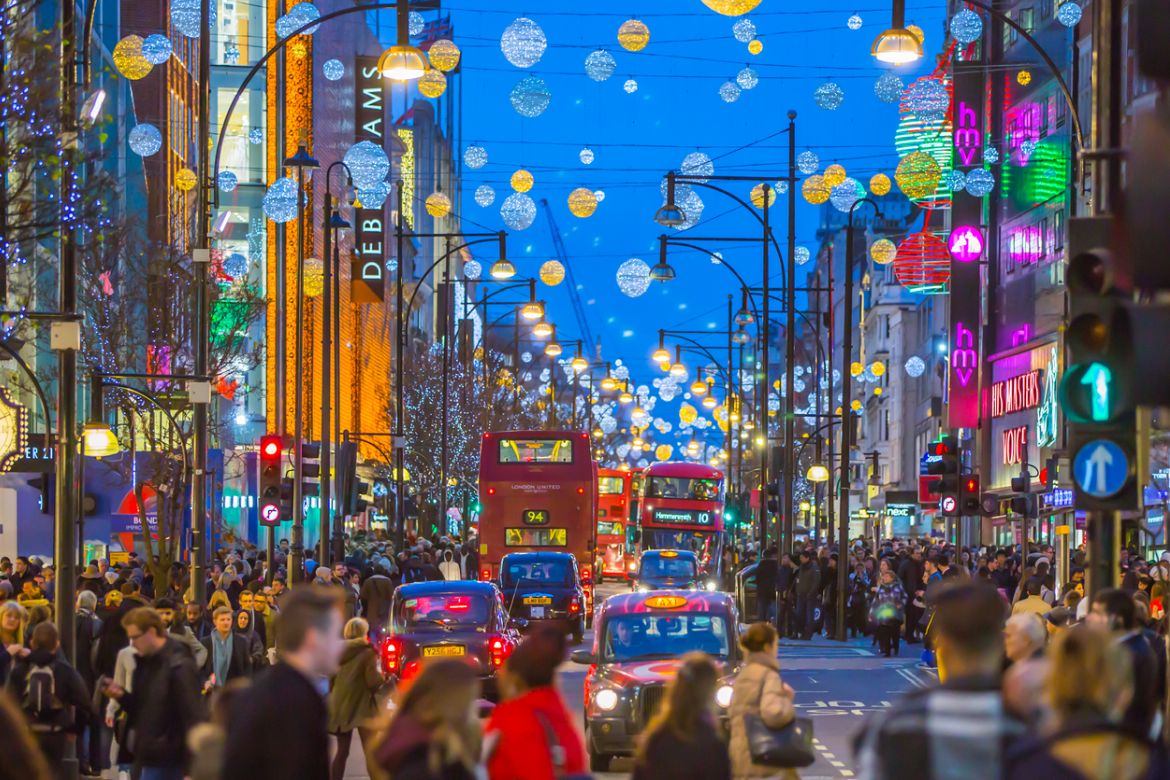Black Friday and Cyber Monday promise the biggest discounts in the build-up to the festive period, year after year. But do the promotions live up to the hype?
During the cost of living crisis, with seemingly ever-rising inflation rates, consumers will certainly hope so. Retailers will also be looking to make gains during a year when many have reduced spending as a necessity. The retail industry may also be worried that the current economic crisis could mean decreased sales volumes and totals.
Sales could reach £8.71billion between Black Friday and Cyber Monday, forecast by the discount code website VoucherCodes. Representing a 0.8 per cent increase in Black Friday weekend sales totals in 2021, it appears that consumers are not to dramatically alter spending during the sales.
Despite the increase, sales volumes are predicted to fall: much of the increase comes from higher prices caused by inflation. Some reduction in volume is also attributed to the ongoing World Cup, with many glued to the screens.
VoucherCodes also found that 41 per cent of Brits expect to spend more on Black Friday weekend than in 2021. This may be the good news businesses require after spending has slowed recently. Physical retailers may also make gains compared to previous years. 2022 holds the first Black Friday in three years without covid rules in place, potentially encouraging spending in physical shops.
Online retailers look to Black Friday for salvation
James Hickman, chief commercial officer of Ecospend, spoke on what Black Friday can do for businesses this year. He said: “While online retail sales have been declining in November, Black Friday could provide some respite to businesses looking for a boost in the lead-up to Christmas.
“However, with online retailers expected to pay more than £5billion in fees for accepting card transactions in 2022 alone, these businesses must look for a longer-term solution in order to maximise profitability.
“Given £4.81billion is expected to be spent during the Black Friday weekend in the UK alone, retailers using open banking payments will be at a real advantage when compared to their competitors, having no card transaction fees impacting their bottom line.
“Not only will this help businesses thrive, but cost savings can be passed onto consumers to provide better savings across the board.”

Consumers turn to buy now, pay later (BNPL) to keep spending
As consumers look to save in the lead-up to Christmas, spending may actually increase over Black Friday weekend. Many could hedge their bets by spending a large proportion during the sales to save money overall. Higher electricity bills and mortgage repayments could add pressure to take advantage of the numerous ‘deals’ offered.
Research from payment orchestration firm BR-DGE shows that 8.4 per cent of online consumer payment transactions could be unsuccessful. With many feeling added pressure from limited-time sales, BNPL may become an increasingly attractive option to obtain order confirmation.
Financial education charity, the Centre for Financial Capability, revealed that 41 per cent of UK adults have used, or will use, BNPL. This number rose to 63 per cent for respondents aged between 18 and 34. The charity also found that this younger group were much more likely to be charged a late fee. Thirty-five per cent of 18 to 34-year-olds had paid late fees on BNPL schemes.
The charity warned that many who use, or will use, BNPL schemes do not fully understand how they work. One-fifth of respondents felt they had not been provided with the full information when using BNPL in the past.
The Centre for Financial Capability warned that some BNPL schemes charge up to 25 per cent of the original price. While this could mitigate potential savings on Black Friday, this charge is also required to be paid at once. If missed, debt collection agencies can be used to recover amounts.
Dud deals – worth the hassle?
With many consumers taking on increased financial risk, Black Friday sales may not even offer the cheapest prices. Which?, the consumer choice watchdog, found that only one in seven deals offered genuine discounts during Black Friday weekend.
In the Which? study, 214 Black Friday deals last year were analysed across seven major retailers including Amazon, Argos, Currys, John Lewis, and Very. Eighty-six per cent of products were found cheaper or the same price as on Black Friday in the six months prior. Almost all products (98 per cent) were found cheaper or at the same price at other times in the year.
How will retailers retain customers?

Sophie Lund-Yates, lead equity analyst at Hargreaves Lansdown, explained why retailers may still offer encouraging prices.
Lund-Yates commented: “Britons are expected to spend £8.7bn over the Black Friday weekend, but there’s a very real chance the cost-of-living crisis will dampen sales. This comes as a real blow for retailers. This is their third Christmas facing weaker consumer behaviour. There’s a broader awareness these days that not all Black Friday deals are great value, meaning the sale factor might not be enough to pull in struggling consumers.
“To entice more customers, retailers may find themselves discounting more heavily than usual too. While this can increase transaction volumes, it can wreak havoc on profits, especially in today’s world when businesses are already grappling with a mushrooming cost base.
“For those areas of the high street and online that will see a boost over the next couple of days, it’s likely this will be a pull-forward of spending from other times rather than an extra source of revenue overall.”
Image and article originally from thefintechtimes.com. Read the original article here.

